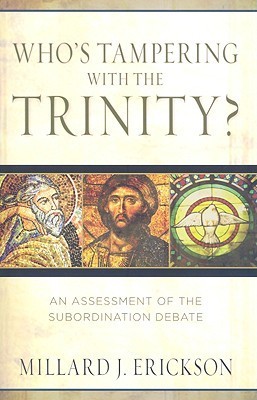What do you think?
Rate this book


272 pages, Paperback
First published April 16, 2009
Each group contents that its view is the true biblical one, and can be shown to be so by a careful study of the Scriptures. Each also claims that it has the support of history-indeed that it is the view that has always been held by the church. Each also holds that the advocates of the opposing view have adopted the view they have on this issue because of a prior commitment on another issue - the relationship of men and women in the church and in the family - in order to justify that prior commitment. They believe the other theology has distorted the traditional formulation of the doctrine of the trinity.
At this point, I would ordinarily terminate my discussion of a theological dispute. Although the two views are quite different from one another, each falls within the boundaries of traditional orthodoxy. Neither view has ever been condemned by an official body of the church. In general, the gradational view more closely resembles the traditional Eastern view of the Trinity, and the equivalence view is a variety of the Western approach to the doctrine. I have no concern that the gradationists who have written and spoken so forcefully in support of their view are not fully orthodox in their doctrine of the Trinity, as well as the other major doctrines of the Christian faith. I have no fear that any of them will, within their lifetimes, move beyond the boundaries of orthodoxy.
Having said this, however, I do have a concern, and significant one. Although the stated doctrine of the gradationists is orthodox, I believe that it contains elements that logically imply an unorthodox dimension of the doctrine of the Trinity. I have in mind here the idea of ontological equality combined with the eternal and necessary supremacy of authority of the Father over the Son and the Holy Spirit. As I argued in the philosophical chapter, I believe this is an unstable position. For if one member always and everywhere is functionally superior to the other, then there must be an ontological basis for this difference. In other words, while explicitly rejecting the idea of ontological subordination, this view actually implies it, and thus contains an implicit ontological subordination.
...
I am concerned to preserve the orthodox tradition, in this case, with respect to the crucial doctrine of the Trinity. I issue this sincere plea to the gradationists: "Please think through the implications of your view, observe the body of evidence against it, and reconsider the idea of the eternal functional superiority of the Father over the Son and the Holy Spirit."